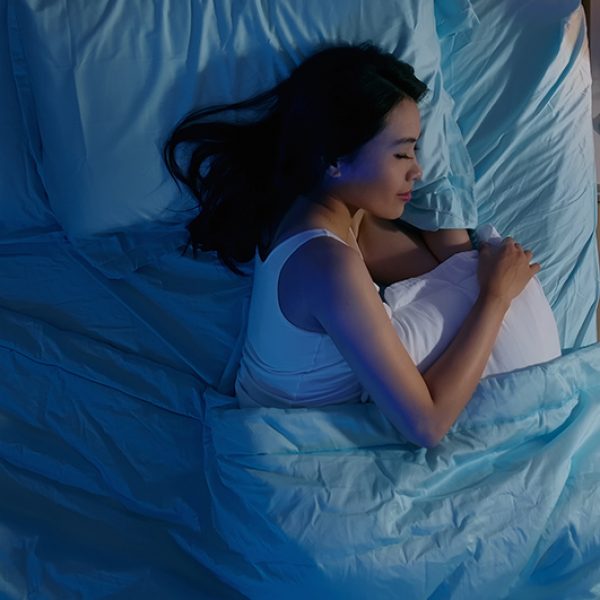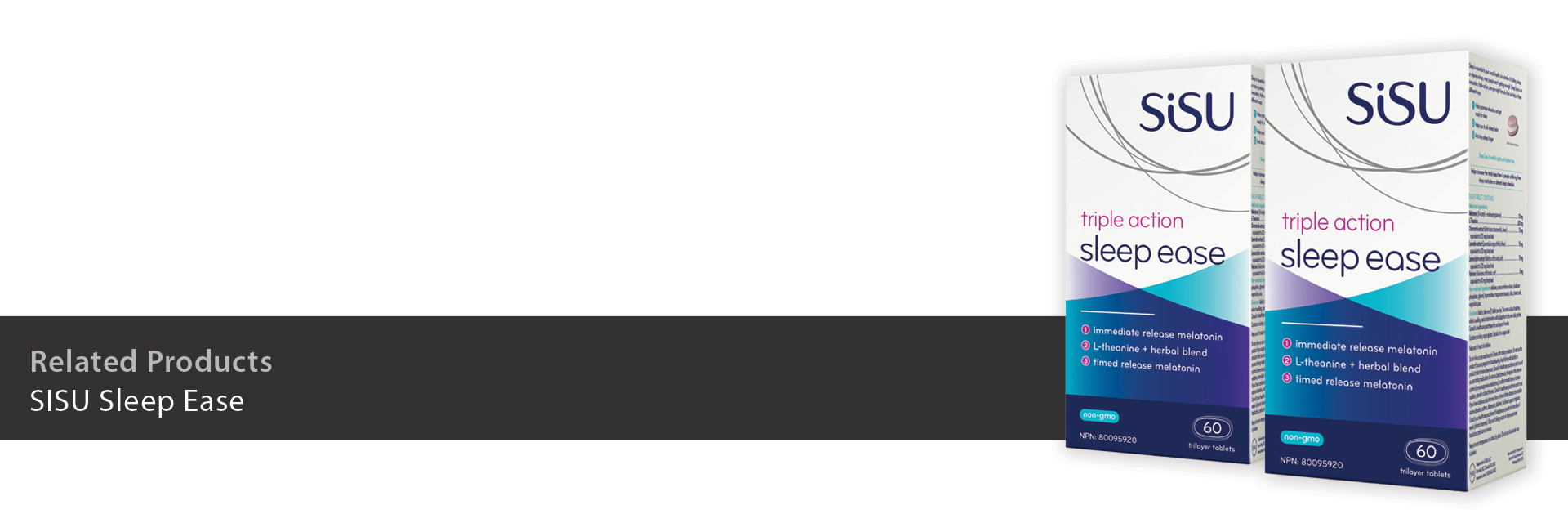

Making The Dream of Better Sleep A Reality
It’s pretty safe to say that we understand the importance of getting enough sleep each night, if only because we’ve all experienced the multitude of ways that our bodies and minds grumble, complain and malfunction when that’s not the case.
Nonetheless, here’s a quick overview: Chronic poor sleep quality is associated with a host of health issues ranging from decreased concentration and memory to mood imbalances, impaired immune function, and increased risk of many more serious health issues. Unfortunately, simply being aware that sleep is important does little to change the fact that roughly half of Canadian adults are unsatisfied with their sleep quality (or quantity)1. Complicating matters is the fact that numerous “facts of life” seem to be working against our pursuit of better sleep, including stress, hormonal fluctuations and the aging process itself. Moreover, despite the twenty million sleep aids prescribed each year in Canada2, and the roughly one-in-ten Canadians currently using prescription sedatives3, many people seek natural solutions to their sleep concerns.
In this article, we’ll go over a few common natural approaches to improving sleep quality. However, always check with your doctor before trying any new interventions, to make sure that they’re right for you.
1. Practice proper sleep hygiene: Ensuring that your bedroom is dark enough encourages the natural secretion of melatonin, a hormone essential for falling and staying asleep. Also, make sure that your room is quiet, and that your bed, blankets and pillow all offer adequate comfort. And let’s not forget cutting back on screen time, which has also been shown to hinder melatonin levels4. A good rule? Shut off the devices (including the TV) at least a half hour before bedtime.
2. De-Stress: Speaking of melatonin, elevated stress levels can also interfere with proper secretion of this important hormone5. So make stress relief a priority! Regular physical activity during the day has been shown to promote sleep quality at night, as do activities like deep breathing and meditation. Also, trying a little lavender essential oil in a diffuser by the bed may be worth trying.
3. Get to the Point: A lot of people find natural therapies like Reiki, massage and even acupuncture very effective at improving sleep (as well as decreasing stress levels, and forcing in a little “me” time).
4. Sleep in a Bottle: People have turned to natural approaches for sleep support for thousands of years, with several agents in particular backed by a solid amount of clinical research. Among these are botanical extracts like valerian, chamomile, passionflower and skullcap, extracts that may work by influencing levels of GABA, a chemical messenger linked with regulation of stress, mood and sleep6,7,8,9. Additional botanicals such as lemon balm, lavender and catnip (yes, the same stuff that drives your cat crazy!) are also often used to promote calm and relaxation. But perhaps no other sleep support supplement has gained as much scientific study as the aforementioned melatonin, with numerous studies illustrating its ability to help people fall asleep faster and stay asleep longer. However, a limitation of most melatonin supplements is that they are either quick-release (ie. fast acting) or timed-release (ie. long lasting), but not both. Fortunately, Sisu Sleep Ease has found a solution, delivering a total of 10 mg of melatonin in both quick-dissolve and timed-release forms. Plus, an herbal blend of valerian, chamomile, lemon balm and lavender, and 200 mg of added L-theanine (a compound found in green tea) to, and, further promote relaxation. This gentle, non habit-forming formula can help you relax and fall asleep quickly, stay asleep, and get the quality rest needed to function at your best, all in just one easy-to-swallow tablet per day.
References:
1 CBC/Radio Canada. (2017, September 20). Go ahead, hit that Snooze button: StatsCan says many Canadians lack sleep | CBC news. CBCnews. Retrieved January 6, 2022, from https://www.cbc.ca/news/health/sleep-statistics-canada-1.4297378.
2 Leffler, Brennan. “Sleep Industry Worth Tens of Billions of Dollars – National.” Global News, Global News, 1 Apr. 2016, https://globalnews.ca/news/2610169/sleep-industry-worth-tens-of-billions-of-dollars/.
3 Prescription sedatives (Canadian drug summary) – CCSA.CA. (n.d.). Retrieved January 6, 2022, from https://ccsa.ca/sites/default/files/2019-04/CCSA-Canadian-Drug-Summary-Prescription-Sedatives-2017-en.pdf.
4 Hale L, Kirschen GW, LeBourgeois MK, et al. Youth screen media habits and sleep: sleep-friendly screen behavior recommendations for clinicians, educators, and parents. Child Adolesc Psychiatr Clin N Am. 2018;27(2):229-245.
5 Hirotsu C, Tufik S, Andersen ML. Interactions between sleep, stress, and metabolism: From physiological to pathological conditions. Sleep Sci. 2015;8(3):143-152.
6 Yuan CS, Mehendale S, Xiao Y, Aung HH, Xie JT, Ang-Lee MK. The gamma-aminobutyric acidergic effects of valerian and valerenic acid on rat brainstem neuronal activity. Anesth Analg. 2004;98(2):353-358.
7 Awad R, Levac D, Cybulska P, Merali Z, Trudeau VL, Arnason JT. Effects of traditionally used anxiolytic botanicals on enzymes of the gamma-aminobutyric acid (GABA) system. Can J Physiol Pharmacol. 2007;85:933–942.
8 Awad R, Arnason JT, Trudeau V, et al. Phytochemical and biological analysis of skullcap (Scutellaria lateriflora L.): a medicinal plant with anxiolytic properties. Phytomedicine. 2003;10(8):640-649.
9 Appel K, Rose T, Fiebich B, Kammler T, Hoffmann C, Weiss G. Modulation of the γ-aminobutyric acid (Gaba) system by Passiflora incarnata L. Phytother Res. 2011;25(6):838-843.

